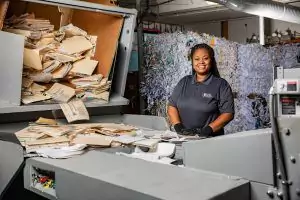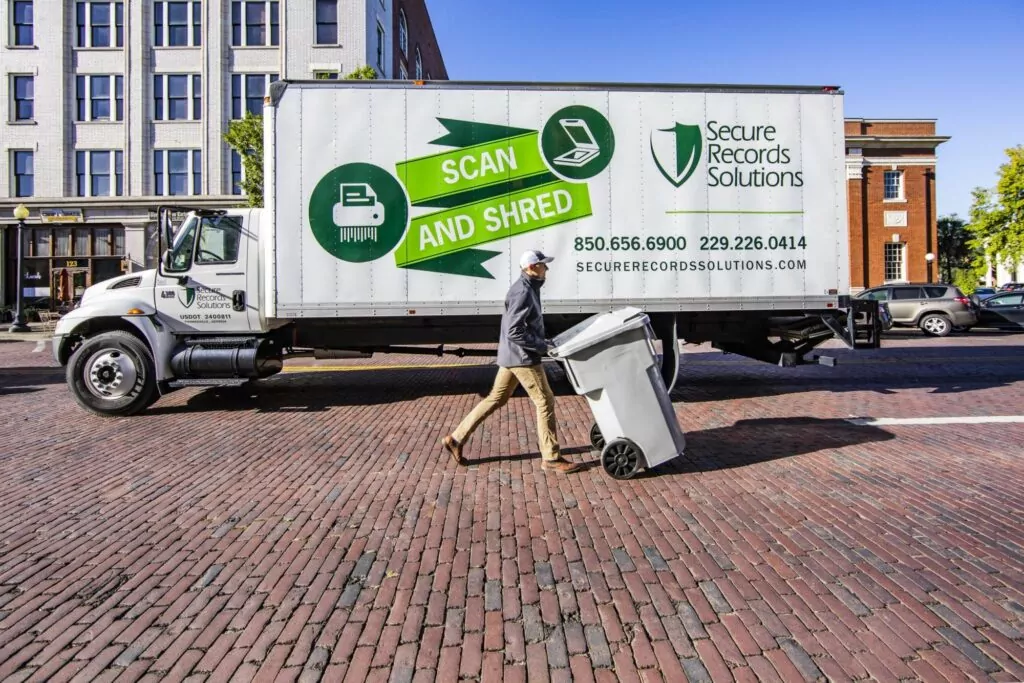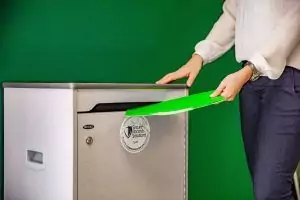New Year New Processes: Why you should ditch in-house shredding this year
Every New Year, we all look for ways to improve our lives, and, for our businesses, processes. One process we suggest you consider is a move to outsource shredding. On the surface, in-house shredding using a desktop shredder seems like it provides cost savings to the business. Typically, however, it is more costly and riskier than outsourcing your shredding. Here are our top five reasons to outsource shredding and not to shred in-house in 2020.
- It is time consuming. Here are some fun facts for you. The average office worker produces 10,000 sheets of paper annually. In any business in which confidential information is shared (social security numbers, credit information, account numbers, or personal health or school records, for example), at least some of those papers will need to be destroyed. The average desktop shredder can shred around 10 sheets of paper per pass. And before they can go through the shredder, binder clips, staples, and bands will have to be removed. SRS’s facility shredder can destroy 350 sheets of paper per pass; that equates to 2.5 tons of paper per hour. And you don’t have to waste valuable time removing staples, binder clips or rubber bands. Our industrial shredder handles that for you. How long might it take you or your staff to shred 2.5 tons of paper using a personal or small office shredder? What ways could they use their time more efficiently than waiting for paper to shred?
- Risk of Human Error. Whether it’s employee payroll information or details about a client’s bank account, you don’t want confidential information sitting on a desk easily discoverable until someone has time to put it through a shredder. Human error is a real risk in businesses, especially with something as seemingly innocuous as shredding documents. How many times in a day does a phone ringing or interruption from a client or boss get an employee off track? One little piece of paper – if it contained the “right” information – could result in big problems for a business.
- Risk of Regulatory Breaches. Any data breaches could result in sanctions from FACTA, HIPAA or other regulatory bodies. As COO Christopher Jones recently shared, the average cost of a data breach is $150 per record. But the ultimate price is the price to your company’s reputation. Just look at Equifax!
- It may not adhere to proper standards. Did you know that there are seven different shredder security levels? Known as levels P-1 through P-7, they are ranked based on the width of the paper shreds. The thinner the shreds, the harder they could be to reassemble, thereby offering a higher level of protection. Do you know where your office shredder falls in this category? By outsourcing to a NAID AAA certified shredding provider like Secure Records Solutions, you ensure that your sensitive information is securely handled using chain-of-custody and destroyed using the industry’s most stringent standards. Furthermore, you will receive a certification of destruction to have for your records. Secure Records Solutions also maintains the GCIC certification, offered by the Georgia Bureau of Investigation.
- It’s a limited resource. At the end of the day, all an office shredder can do is shred paper. At Secure Records Solutions, we offer several service lines above and beyond paper shredding. Whether it’s a big purge after the end of the fiscal year or after tax season for CPAs, or you need media or hard copy destruction, SRS can help. We also help with larger scale document management problems for business offices running out of space or healthcare offices needing help with retention policies and storage of historical records. No matter what the challenge SRS can find the solution, and, ultimately, improve the way you do business.





